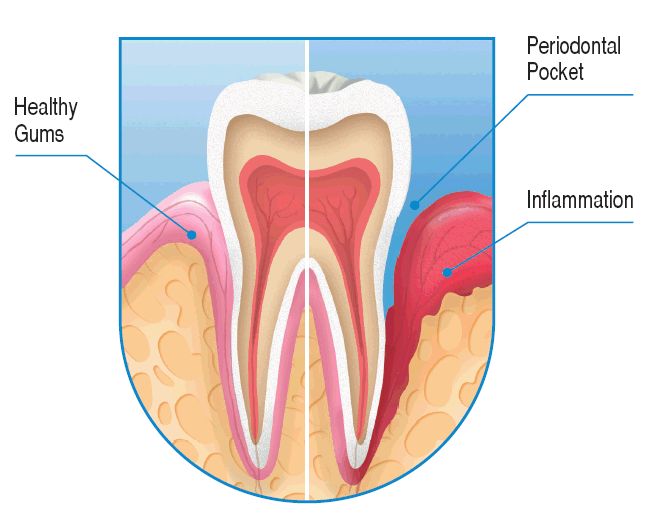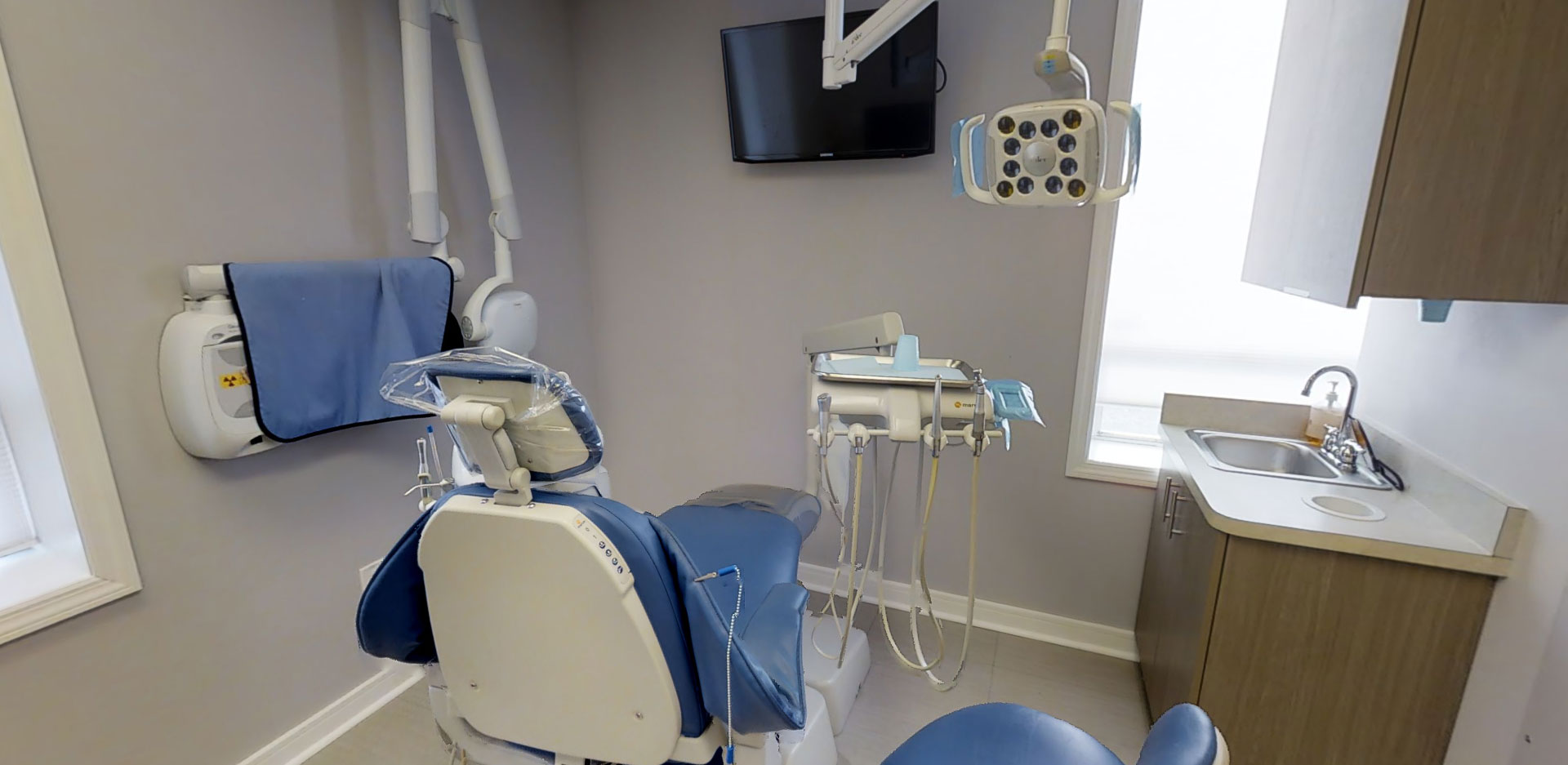
You already know what regular, routine teeth cleaning is like, but have you ever had deep cleaning performed on your teeth? Deep cleaning involves scaling and root planing, and it's designed to fight periodontal disease bacteria that can destroy your jawbone and result in the loss of your teeth.
As part of deep cleaning, the dentist performs a comprehensive evaluation of your mouth's health. This assessment includes measuring your gum tissue with a diagnostic tool called a periodontal probe. This instrument measures the depths of the pockets around each tooth to determine your gum health.
If the pockets measure between 1 and 3 millimeters and no bleeding is present, you have no active gum disease. However, if the pockets measure 4 millimeters or greater and you're experiencing bleeding or inflammation, it means bacteria are present and are making your gums pull away from your teeth.
Deep cleaning is a preventive measure performed by your dentist, usually every six months, to keep your mouth healthy. You may feel a sense of dread at the thought of deep cleaning that involves scaling and root planing, but it's relatively painless and far less complicated than you might expect.
Do You Need Deep Cleaning?
The American Academy of Periodontology calls for every adult to receive an annual periodontal assessment to determine whether any treatment is needed.
If your dentist finds gum pockets of 5 millimeters, he's likely to recommend an appointment for deep scaling and root planing. In addition, if you experience chronic gum disease of any sort, deep cleaning is highly recommended to prevent tooth loss and other serious consequences.
Signs of Gum Disease
If tartar and plaque are left untreated, bacteria breeds in the mouth. This can lead to gingivitis, which is often painless and can be symptom-free. However, gingivitis can create periodontal pockets, which cause more damage to the teeth.
If you experience any of the following symptoms, you should make an appointment with your dentist to seek treatment:
- Gums that are bleeding, red, swollen or tender
- Gums that recede from the tooth
- Bad breath
- Loose teeth
- Any pus around the gums or teeth
The Deep Cleaning Procedure
The deep cleaning procedure isn't anything to get stressed about, and when you know what to expect, you can be more relaxed. Take a look at the steps involved:
- Examination. The dentist examines your whole mouth, using a small mirror to check your gums and teeth for inflammation and any other signs of gingivitis. Based on his analysis, the dentist will then either schedule another appointment for deep cleaning or proceed to perform deep cleaning right then and there.
- Tartar Elimination. Still using that small mirror, the dentist then takes a scaler in hand to eliminate tartar and plaque around the gum line and between the teeth. The scraping sounds that you hear are normal. This stage of the procedure can take a variable amount of time depending on the amount of tartar present.
- Cleaning With Tooth. Once your teeth are free of tartar, your dentist brushes them using a high-powered electric brush and a toothpaste that has a granular consistency but that tastes and smells like regular toothpaste. The grinding sound you may hear is just the sound of the electric toothbrush.
- Flossing. The dentist next flosses between your teeth to remove any leftover plaque and to identify any problem spots, which are indicated by gum bleeding.
- Rinsing. The dentist will now rinse your mouth with a liquid fluoride rinse.
- Flouride Treatment. Typically your deep cleaning procedure ends with a flouride treatment that consists of a foamy gel left on your teeth for about a minute. This treatment helps your teeth fight cavities for the next few months.
What Else Should You Know About Deep Cleaning?
Your teeth should be professionally cleaned twice each year, with X-rays performed annually. These regular dental checkups can help prevent major problems from developing and indicate whether you need more dental treatments to preserve your mouth's health.
When you go in for deep cleaning, you'll experience little to no discomfort if the pockets around your teeth aren't too deep. All you're likely to feel is the sense of physical scraping along the teeth as the dentist smoothes the area.
Deep cleaning typically doesn't require numbing your mouth; the dentist will decide whether to numb your mouth based on the condition of your teeth's roots and the depth of the pockets. If you do feel any discomfort or pain, let your dentist know. If needed, the dentist can use Oraqix as a substitute for an injection of anesthetic. This non-injection device delivers topical anesthetic gel directly into deep gum pockets. With the use of Oraqix, you can avoid numbing your tongue or lips as often occurs with injectable anesthetics.
Once your teeth's roots have been planed, with all tartar removed, they should heal well. The process of deep cleaning can reduce some deep gum pockets significantly.
The Benefits of Deep Cleaning
You'll start to experience the benefits of a deep cleaning procedure immediately as red and swollen gums return to their pink, firm status. Pockets around the teeth become smaller, and any bleeding you've experienced is reduced.
Take a look at some of the other benefits of deep cleaning:
- Disease Prevention. When you eliminate plaque, calculus and tartar through deep cleaning, you help prevent infections and diseases that are caused when bacteria in the mouth proliferate.
- Reduction of Tooth Deterioration. As long as bacteria remains in your mouth, you run a risk of tooth loss and gradual deterioration of your teeth. Deep cleaning removes the bacteria and reduces these risks.
- Good Oral Health. Deep cleaning is just one element of a total oral health routine. To maintain oral health, you should also practice good brushing habits, floss regularly, drink enough fluids and avoid sugary snacks and smoking.
Caring for Your Teeth After Deep Cleaning
To maintain good oral health after a deep cleaning procedure, you should practice good teeth cleaning habits at home. Brush twice a day with fluoridated toothpaste and a soft nylon toothbrush. Use medicated toothpaste and good mouthwash to control the buildup of tartar, and always choose products approved by the ADA. Use an approved mouthwash as well. Eat a diet that's rich in citric acid and vegetables.
For a free consultation that can determine whether you're in need of deep cleaning, give us a call today.



 (973) 567-7773
(973) 567-7773
